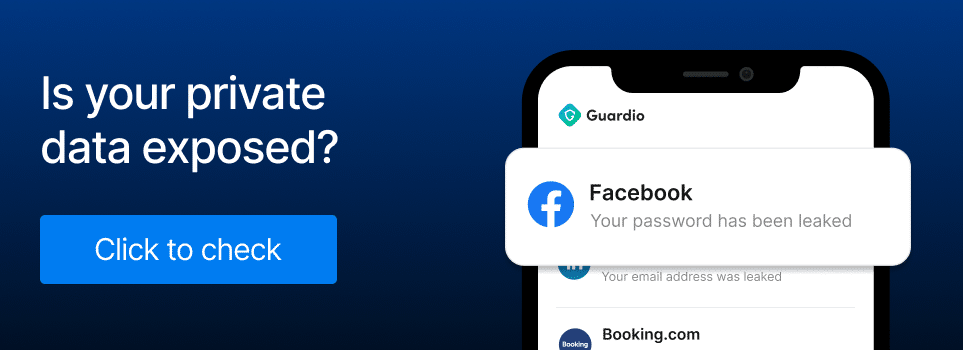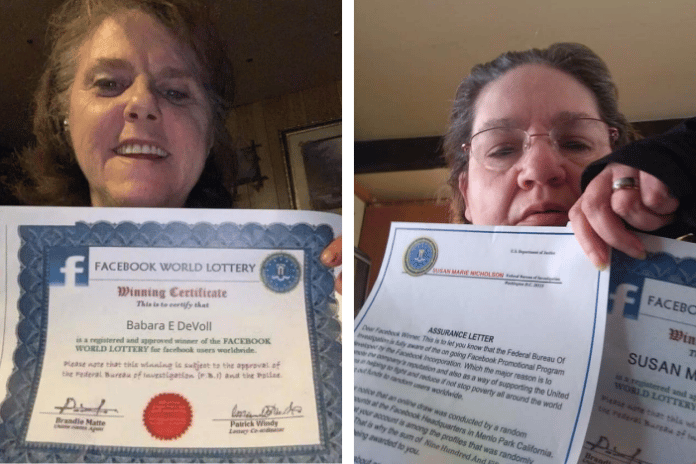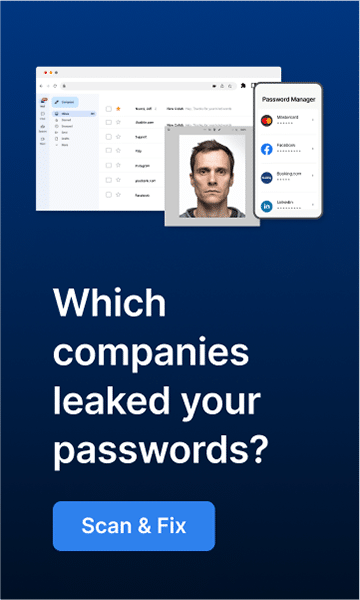Facebook has remained one of the most popular social media platforms worldwide for over a decade, with billions of users active at any time. Its ability to make connections, share experiences, and direct messaging make it extremely popular across a diverse user base. Unfortunately, this also makes it a platform ripe for scams and fraud due to the number of people that cybercriminals are able to reach. In this article, we go over one such fraud, the Facebook Lottery Scam, how it tricks people, and how to protect against it.
What is the Facebook Lottery Scams
Winning instant wealth is the dream of billions, and this very wish is what the Facebook lottery scam tries to exploit. These scams typically start with a message from a fake account that might impersonate a fraud, a well-known public figure, or even the Facebook team. The scammer claims that the user has won a considerable amount of money via the lottery, and these winnings can be claimed by providing their personal information. The scammer might also request a small processing or shipping fee for the transaction. Given the prospect of winning massive amounts of money, users are typically willing to hand over this information. However, the prize does not exist, and they are left as victims of identity theft.
The messaging of the scam might change with scammers changing their tactics by pretending to be a well-known influencer, a lawyer, a millionaire, etc., who have chosen you out of billions to receive the reward. However, the end goal is the same, which is to compromise the user’s personal information and trick them into paying the scammer. In some cases, scammers might compromise a user’s account and message their friends, giving the attack more credence and increasing the chances of access due to the trust already established.
How to Protect Yourself
The tell-tale signs of a Facebook lottery scam are similar to those in standard phishing, such as poor grammar, typos, a sense of urgency, and requests for personal information. They prey on the same human tendencies of trust and desire to be wealthy that is common with all phishing techniques.
Some of the key controls that can be implemented to protect yourself against such scams are:
- Adjusting Facebook privacy settings so that not everyone can send you friend requests and messages. By reducing your profile visibility, you limit the attacker’s ability to see your friends list, email, etc. This, in turn, reduces the chances of you being contacted with such a scam.
- If you receive such a message, looking up the lottery or prize being offered is trivially easy. The most obvious sign is that you might never have entered a lottery in the first place and that lotteries do not ask for money upfront to process your prize. Educate yourself on these tactics so that you are not caught unawares.
- Ensure never to respond to the messages you receive or provide any personal information to the scammer. Instead, report the sender to Facebook and block them from contacting you further. If it appears to originate from a trusted friend, then inform them their profile might have been compromised.
- The links in Facebook lottery scams can also lead to malware infecting your devices, providing scammers further access to your personal information. Third-party solutions are present that can inform you if messages appear to be fraudulent or are high risk. Find and install reputable security software to protect your profiles and devices.
- Contact your financial institution immediately if you have provided your personal information or account details. Set up alerts for your banking accounts to inform you proactively if any fraudulent transactions occur on your account. Similarly, change your credentials if they were provided.
- Facebook provides a feature that can be used to report fraudulent accounts and messages. Make use of this to report scammers that contact you.

Conclusion
The lure of easy money can make even the most vigilant person susceptible to scams, and Facebook Lottery Scams are particularly insidious in how they manipulate people. They prey on the inherent trust present within the platform and on people’s desire to be rich to succeed. These attacks can easily be identified and thwarted with proper awareness and controls.
Always be skeptical of offers and messages that sound “too good to be true,” as they usually are! Suppose you receive unsolicited messages promising you vast amounts of money in return for your personal information or a small payment. In that case, this is a dead giveaway of a scam on any platform. Make sure to update your Facebook privacy settings to protect yourself and reduce the attack surface area of your profile. Install security software as an added defense.
The fight against scammers and cybercriminals is a never-ending cat-and-mouse game. By arming yourself with awareness and proper technical controls, you can continue to enjoy Facebook in a safe and secure manner.
Frequently Asked Questions
What are Facebook Lottery Scams?
Facebook Lottery Scams are fraudulent schemes where scammers impersonate fake accounts, public figures, or even the Facebook team, claiming that users have won a substantial amount of money through a lottery. These scams trick individuals into providing personal information or paying processing fees, ultimately leading to identity theft.
How can I protect myself from Facebook Lottery Scams?
Here are some key measures to protect yourself:
1.Adjust your Facebook privacy settings to limit friend requests and messages from unknown sources.
2.Verify the legitimacy of any lottery or prize offers by researching them independently.
3.Never respond to scam messages or provide personal information to scammers.
4.Report and block suspicious senders, and inform friends if their profiles might have been compromised.
5.Be cautious of clicking on links within these scams, as they may contain malware.
6.Install reputable security software to safeguard your profiles and devices.
7.Contact your financial institution if you’ve shared personal information or account details, and set up alerts for any fraudulent transactions.
How can I identify a Facebook Lottery Scam?
Look for common signs, including poor grammar, typos, a sense of urgency, and requests for personal information or upfront payments. Lotteries do not ask for money to process prizes, so be skeptical of any such requests. Educate yourself on the tactics used by scammers to avoid falling victim.
What should I do if I encounter a Facebook Lottery Scam?
If you receive a suspicious message, report the sender to Facebook, block them, and never engage further. Update your Facebook privacy settings, install security software, and remain vigilant. If you’ve already provided personal information or account details, contact your financial institution immediately and change your credentials.

